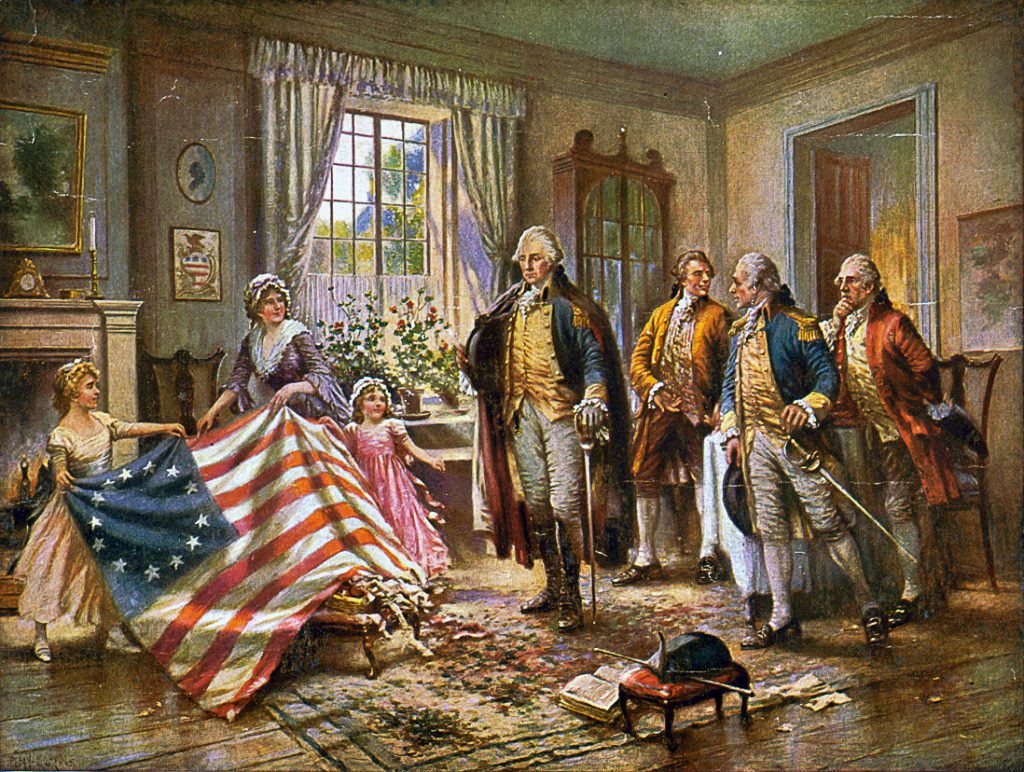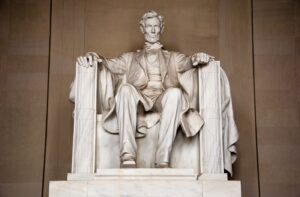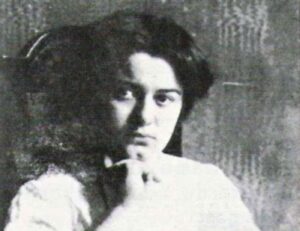In Phillip Muñoz’s response to The Political Theory of the American Founding, he generously praises my account of the founders’ political theory and its relation to marriage. He reserves his criticism not for me but for the founders. He challenges them in two ways. First, he asks, can their support of lifelong marriage be reconciled with their belief in the natural right to liberty? For if the founders justified marriage as an institution for the care of children, how can the natural law stand in the way of at-will divorce after they are grown up? Second, Muñoz asks a broader question: can “the political theory of natural rights and natural law—at least insofar as it relies on natural reason alone—… sustain healthy families”? If it cannot, “it would seem to be neither a good nor attractive political theory.”
Muñoz’s questions suggest that it may be unwise for people today to look to the founders’ political theory for guidance in today’s America.
Muñoz situates his questions in the context of my overall argument in Political Theory. I argue (and Muñoz agrees) that the founders were clear on the strictly rational character of their political theory. As they understood them, the laws of nature and the natural rights of the individual are discovered by human reason, period. Divine revelation (Christianity), together with some features of the common law and the British constitution, support these discoveries of reason, but they are not their source or ground.
In Political Theory, I also argue (and Muñoz agrees) that in spite of—or rather because of—the strictly natural-rights and natural-law basis of the American republic, the founders rejected the “all rights, no duties” view that is so often attributed to them by conservative critics like Patrick Deneen and his teacher Carey McWilliams. According to the founders, government requires citizens’ virtue in order to secure the natural rights of individuals. The 1776 Virginia Bill of Rights states their consensus with all desired clarity: “no free government, or the blessings of liberty, can be preserved to any people but by a firm adherence to justice, moderation, temperance, frugality, and virtue.” The reason is simple. If there is “not sufficient virtue among men for self-government,” Madison writes in Federalist 55, “nothing less than the chains of despotism can restrain them from destroying and devouring one another.”
Start your day with Public Discourse
Sign up and get our daily essays sent straight to your inbox.This brings me to the substance of Muñoz’s remarks here at Public Discourse, which focus on my chapter on marriage.
Lifelong Marriage
Muñoz’s first challenge to the founders concerns their laws requiring men and women to stay married for life. For example, a 1785 Pennsylvania law states, “it is the design of marriage, and the wish of parties entering into that state, that it should continue during their joint lives.” Divorce was granted only when there was a violation of the marriage contract. Typical grounds included adultery, abandonment, cruelty, incest, or “impotence” (inability to generate children). Muñoz asks why the founders did not follow Locke’s “minimalist view that the obligation of the marriage tie ends when the children are old enough to ‘shift for themselves.’” He cannot understand why “civil society [in Locke’s view] may and in the founders’ view should add to this minimum.” “Why is this legitimate?” Muñoz asks. “What justifies restrictions on our pursuit of happiness or liberty beyond the requirements of the law of nature? West never really explains.”
It is true that I do not discuss this topic explicitly in Political Theory. However, I explain the kind of natural-law reasoning behind the founders’ view that marriage should be a lifelong contract. Muñoz rightly describes the family as “perhaps the most important institution for the cultivation of the character necessary for natural rights republicanism.” He also acknowledges that it is “useful for society” for marriage to continue after the children are grown up. I add that it is “useful” not in some vague way, but because it helps government to achieve its sole purpose: “to secure these rights.”
How is lifelong marriage useful to this end? Here are three answers given in the founding era.
First, “Marriage is . . . intended to regulate, chasten, and refine the intercourse between the sexes . . . [It is] essential to the peace and harmony . . . of civil society” (Mass. Supreme Court, 1810). It is also intended “to discountenance wanton and lascivious cohabitation, which, if not checked, is followed by prostration of morals, and a dissolution of manners.” Keeping one man and one woman together for life will make it difficult for older divorced men to become predatory dangers to the marriages of others. It will also mean that younger married women will seldom be tempted to abandon their husbands for a more exciting mate.
Second, besides the danger to family stability from sexual infidelity, post-childhood no-fault divorce would also free men and women from day-to-day responsibilities to each other. At its best, marriage at all ages is a kind of school for virtue. A 1791 magazine article states that “while other passions concentrate man on himself, love makes him live in another, subdues selfishness . . . The lover becomes a husband, a parent, a citizen.” In an 1801 article, the “marriage institution” is said to be “the first to produce moral order.” These beneficial moral effects extend far beyond the childrearing years.
Third, lifelong marriage performed a no less necessary role in society as a leading provider for the old, sick, and disabled. That responsibility would otherwise fall much more heavily on the state. In the early republic, families often took care of relatives in need at all times of life. William Paley’s Principles of Moral and Political Philosophy, which was required reading at colleges in the 1790s and after, states that marriage tends to promote the “private comfort of individuals, especially of the female sex”—presumably by guaranteeing that women will be provided for both before and after the children are grown up. Paley could have added that marriage also promotes the “private comfort” of men. The usual division of labor between husbands and wives when children are young continues after they have left home, to the benefit of both sexes.
Muñoz finds this kind of justification insufficient. However useful lifelong marriage might be, he writes, “in a regime dedicated to natural rights, we are not supposed to sacrifice the individual’s legitimate freedom for the utility of society.” But Muñoz himself gives us the founders’ answer:
If the natural-rights republic depends on healthy families, and if healthy families depend on lifelong marriage, the natural-rights republic that recognizes at-will divorce as a matter of justice will inevitably undermine one of the foundational pillars on which its flourishing depends.
This sentence of Muñoz is actually a good example of the founders’ kind of natural law reasoning.
It is in the nature of the social compact that “the people must cede to [government] some of their natural rights, in order to vest it with requisite powers.” The Massachusetts town of Essex explains:
When men form themselves into society, . . . [e]ach individual . . . surrenders the power of controlling his natural alienable rights, only when the good of the whole requires it. . . . [T]he equivalent every man receives, as a consideration for the rights he has surrendered, . . . consists primarily in the security of his person and property.
Men and women who enter the social compact “surrender” to government the regulation of the marriage contract. This “surrender” is parallel to surrendering the right they have in a state of nature to keep all of their property. People join political society for better protection of property and of their ability to acquire it, but they give the government the right to take some of their property through taxation in order to sustain the government that protects the rest of their natural rights. The same is true of marriage. We allow government to define the bounds of the marital contract, with the expectation that men, women, and children—and their natural rights—will be better protected as a result.
Can Mere Reason Provide a Sufficient Basis for Moral Obligation?
Muñoz’s second broad question goes beyond marriage and extends to the theoretical basis of the founders’ view of morality. He asks how mere reason can sustain the moral basis of the nation when reason seems to lead not to absolute moral commandments, but only to principles that are useful for the happiness of society. “If following the law of nature is not morally obligatory,” asks Muñoz, “then is it necessary to stay in a marriage you don’t much like, a marriage that seems antithetical to your happiness and well-being?” It seems that natural rights and natural law alone will not do.
I agree with Muñoz that “the natural fitness of things” was one of the leading arguments in the founding for the truth of their natural-rights and natural-law doctrine, and that this kind of argument does not by itself yield moral absolutes. But that is precisely why the founders often accepted other arguments that might offer a more solid basis for their moral convictions. One is the idea of God as the ultimate lawgiver, as stated in many founding documents. Another is the notion of an inborn moral sense, a view that Jefferson and James Wilson were inclined to.
But whatever may be the status of the theoretical foundations of the founders’ position, they were all well aware that, as a practical matter, reason alone is insufficient to make men perform their duties. Fidelity to marriage vows and other obligations could not rely solely on appeals to the laws of nature. The founders therefore used other ways to form the character of citizens, as I explain over the course of several chapters in Political Theory: criminal laws punishing harm to life, liberty, and property; civil laws enabling recovery of damages; public education; shaping public opinion through teaching and example, including public honors for exemplary citizens; and, of course, laws on marriage and family.
Another means of promoting good character, as Washington and Jefferson agreed, is to promote faith in a God who endows mankind with the gift of liberty and requires us to perform the basic duties of the laws of nature. Washington: “reason and experience both forbid us to expect that national morality can prevail in exclusion of religious principle.” Jefferson: “can the liberties of a nation be thought secure when we have removed their only firm basis, a conviction in the minds of the people that these liberties are of the gift of God? That they are not to be violated but with His wrath?”
I was surprised by Muñoz’s conclusion, which is much more friendly to the founders than one would expect from his earlier argument. He writes,
the deepest teaching of West’s Political Theory of the American Founding might be that a secular natural rights political theory—that is, natural rights and natural law without God—is insufficient to sustain the natural-rights republic. The founders, of course, understood this, which is probably one of the reasons why they declared our unalienable rights to be “endowed by our Creator.”
If there is one truth that the entire philosophic tradition may be said to embrace, in spite of all its disagreements, it is this: reason teaches that it is unreasonable to expect people to act by reason alone.












